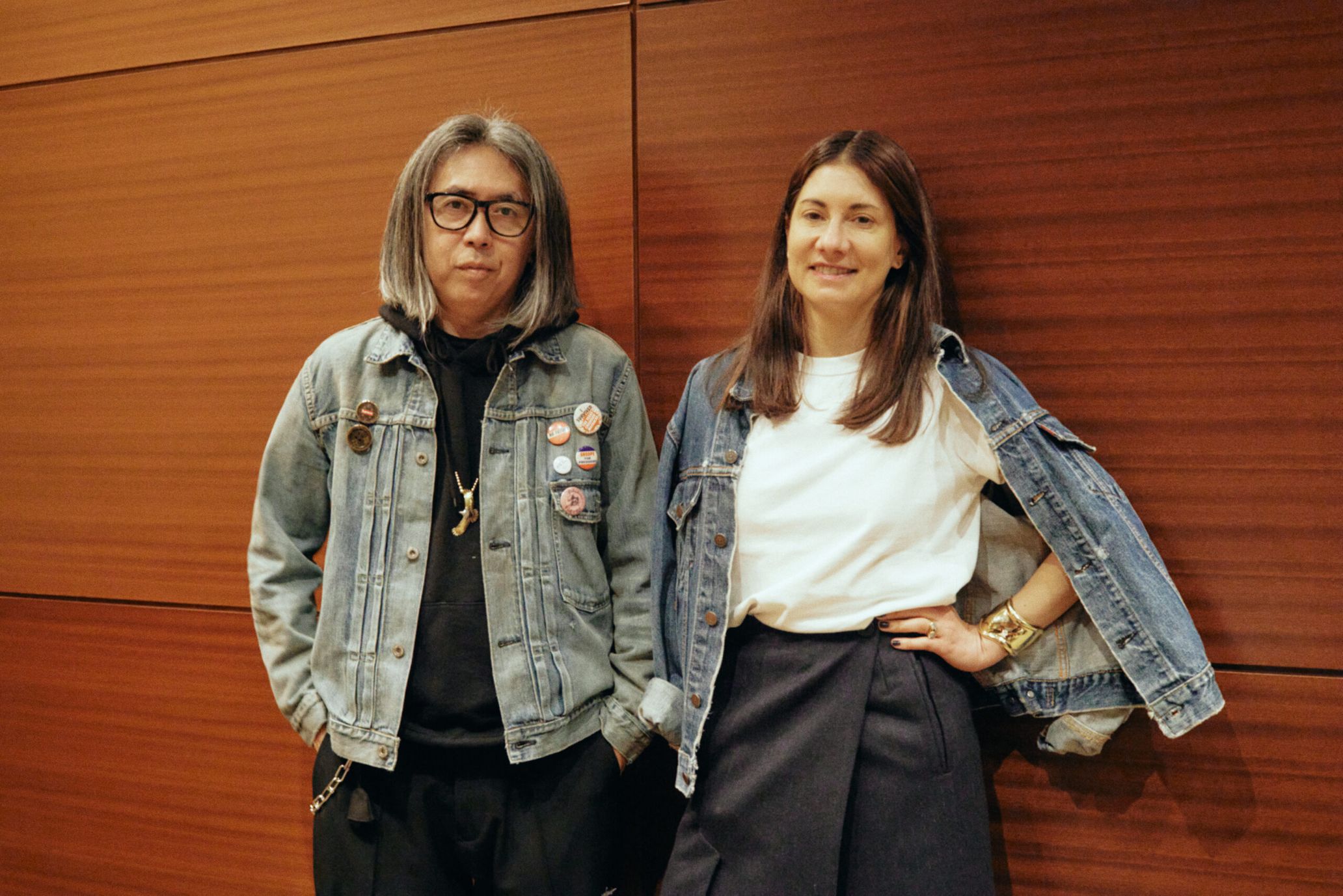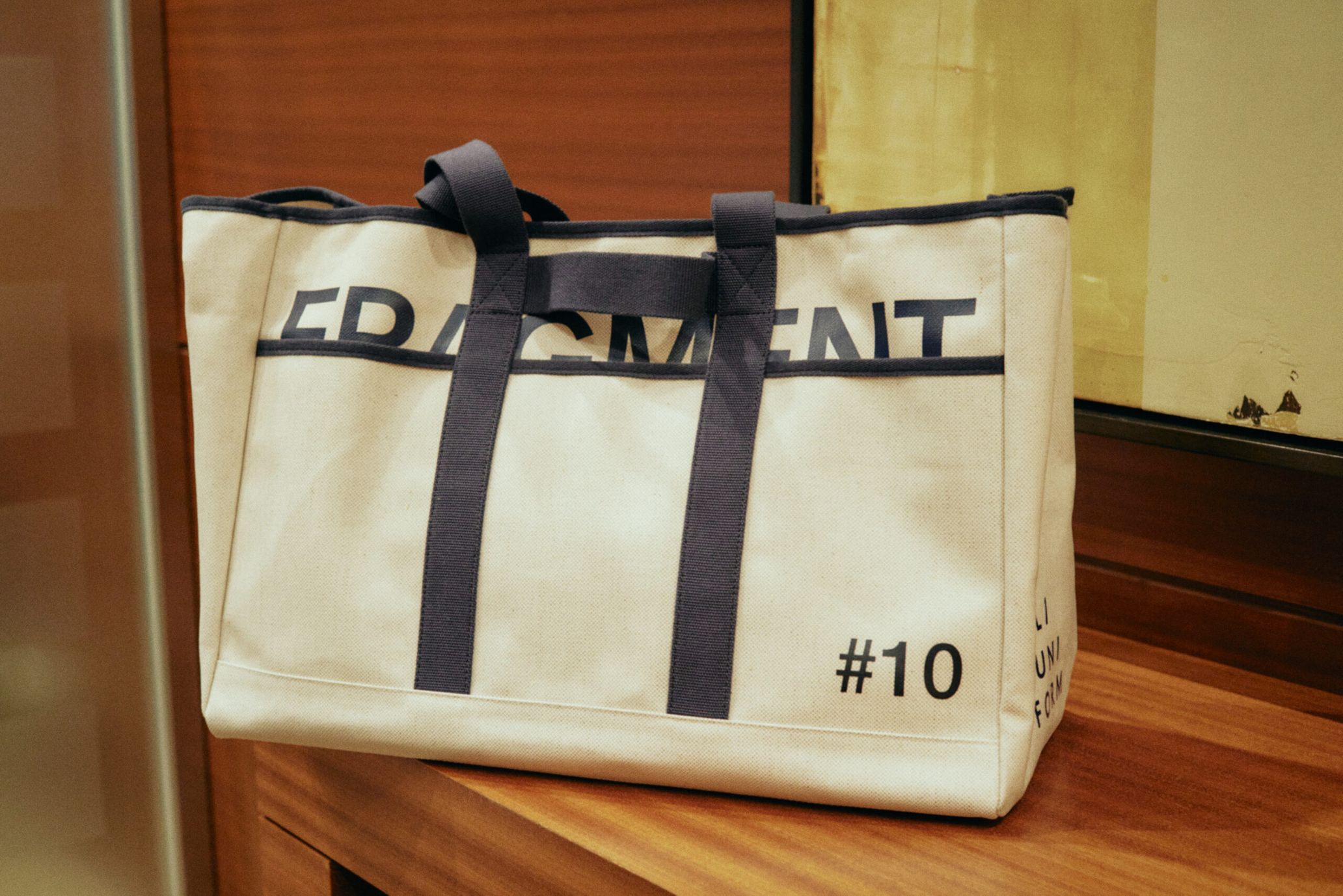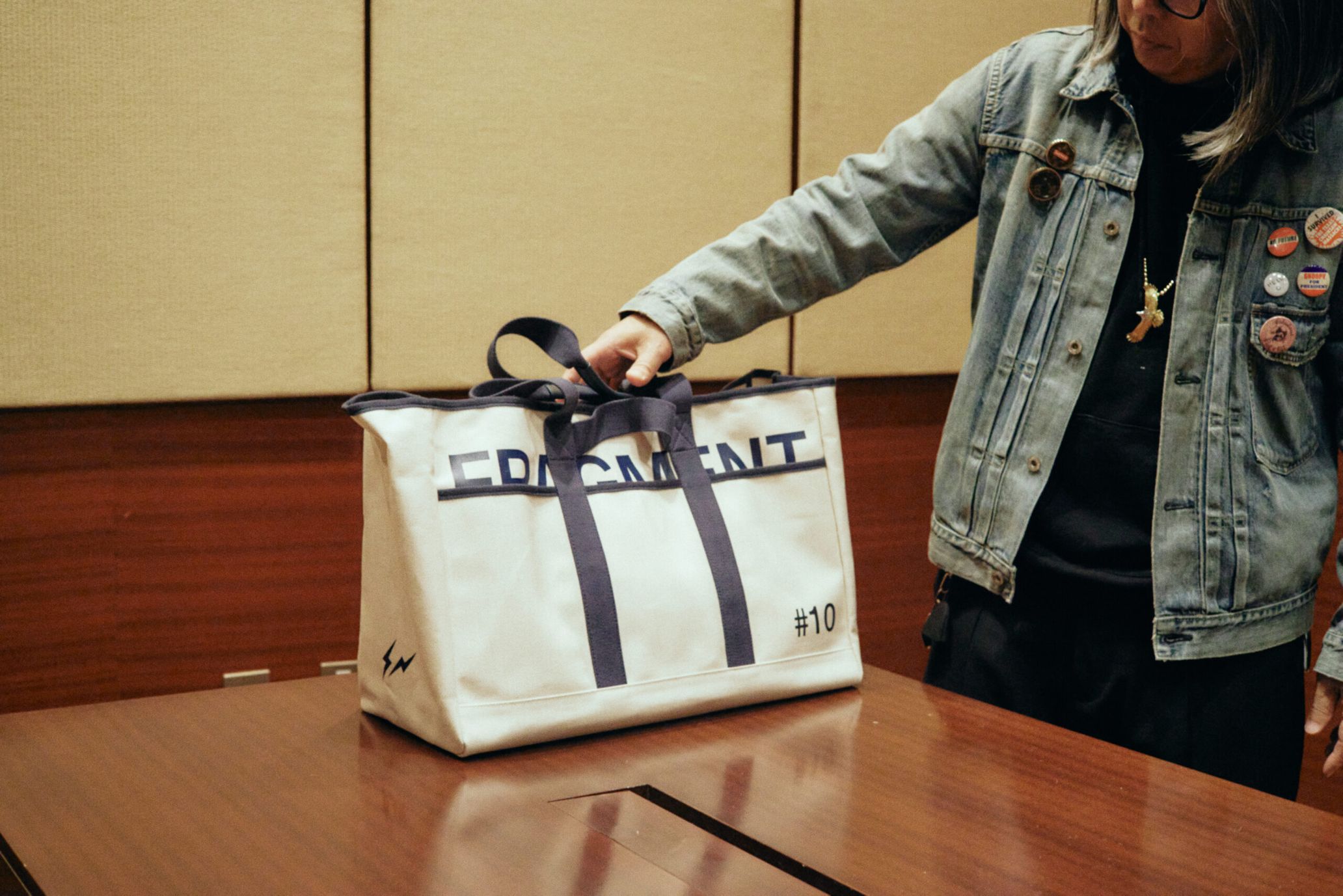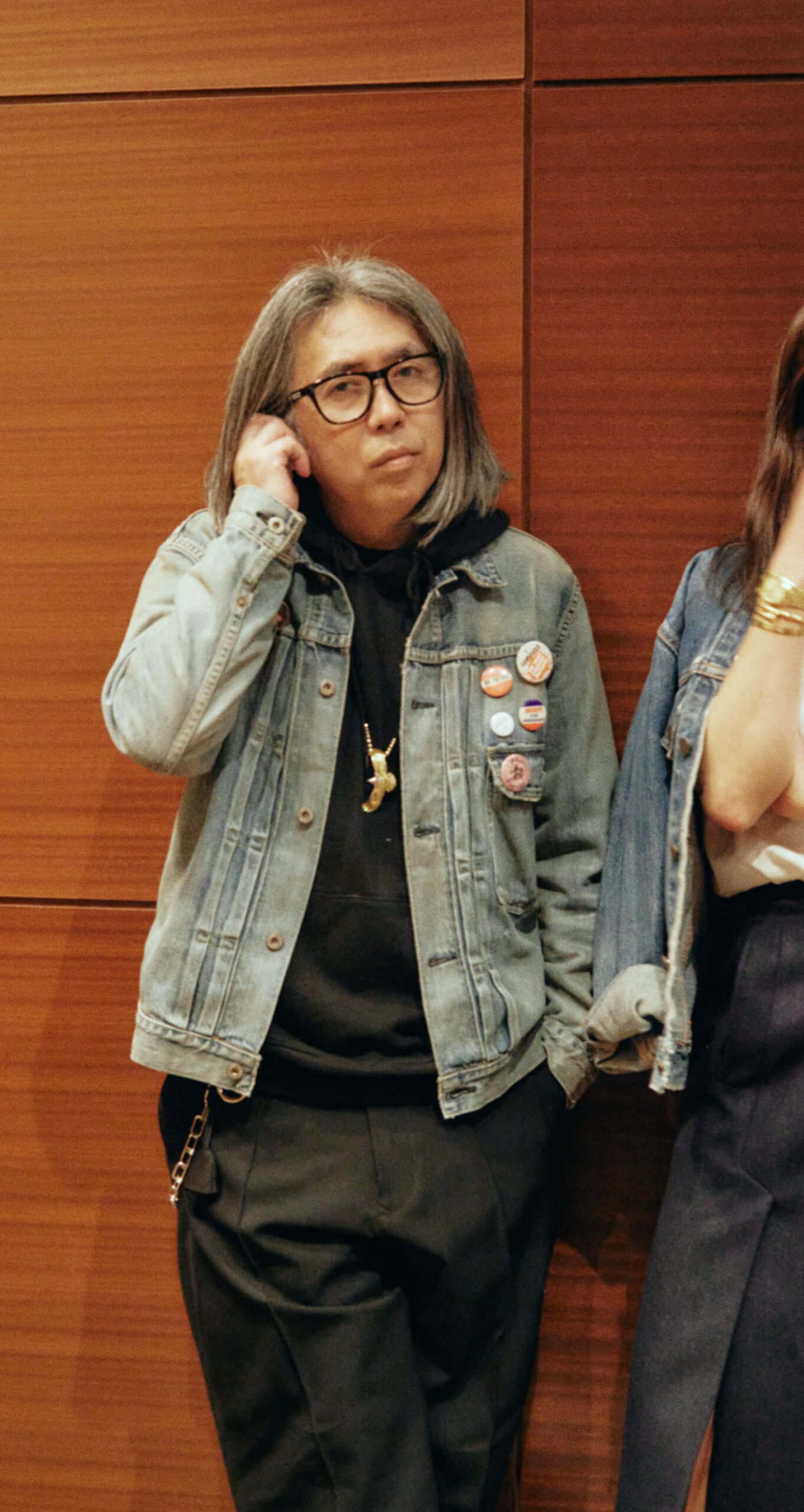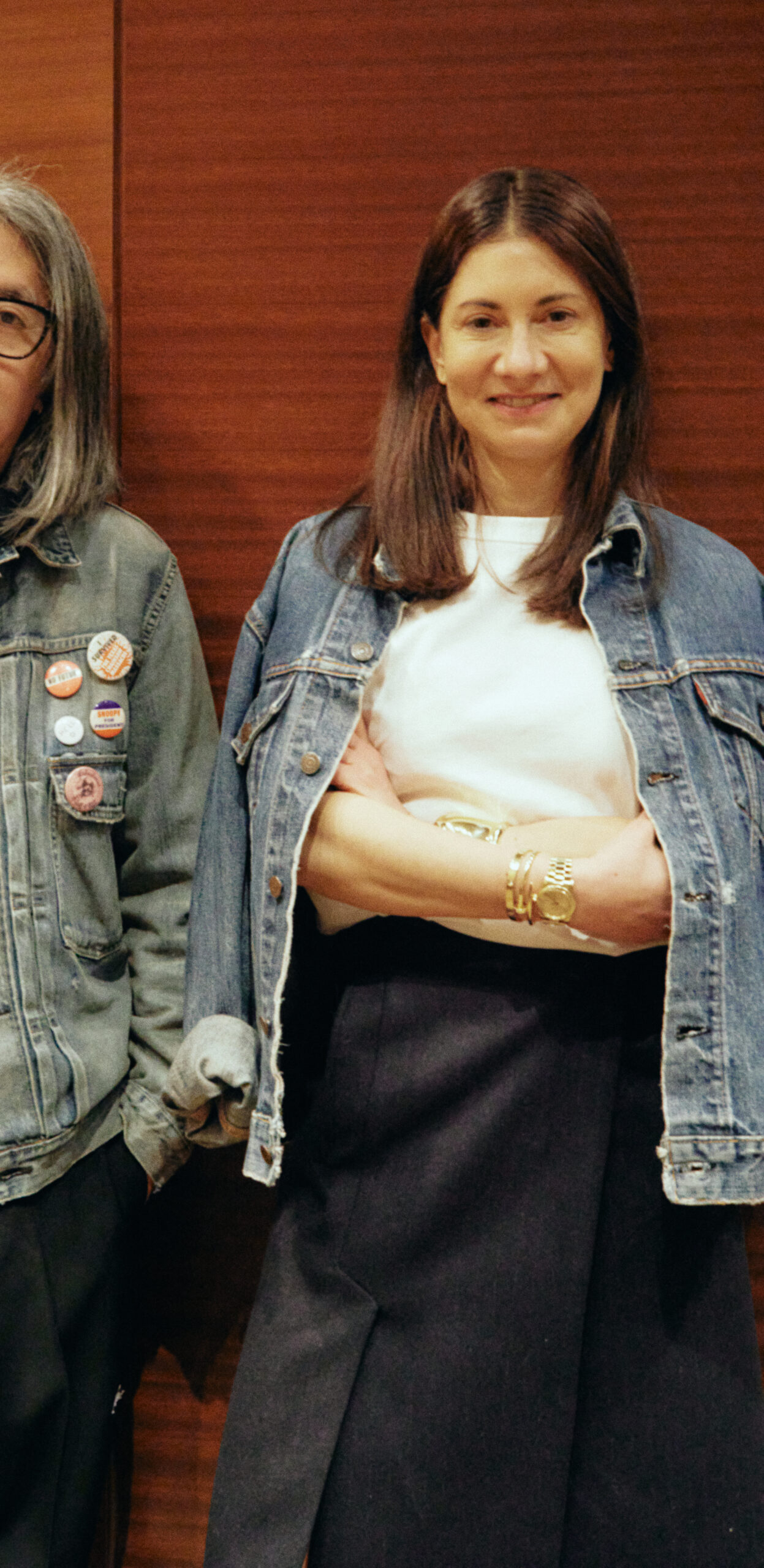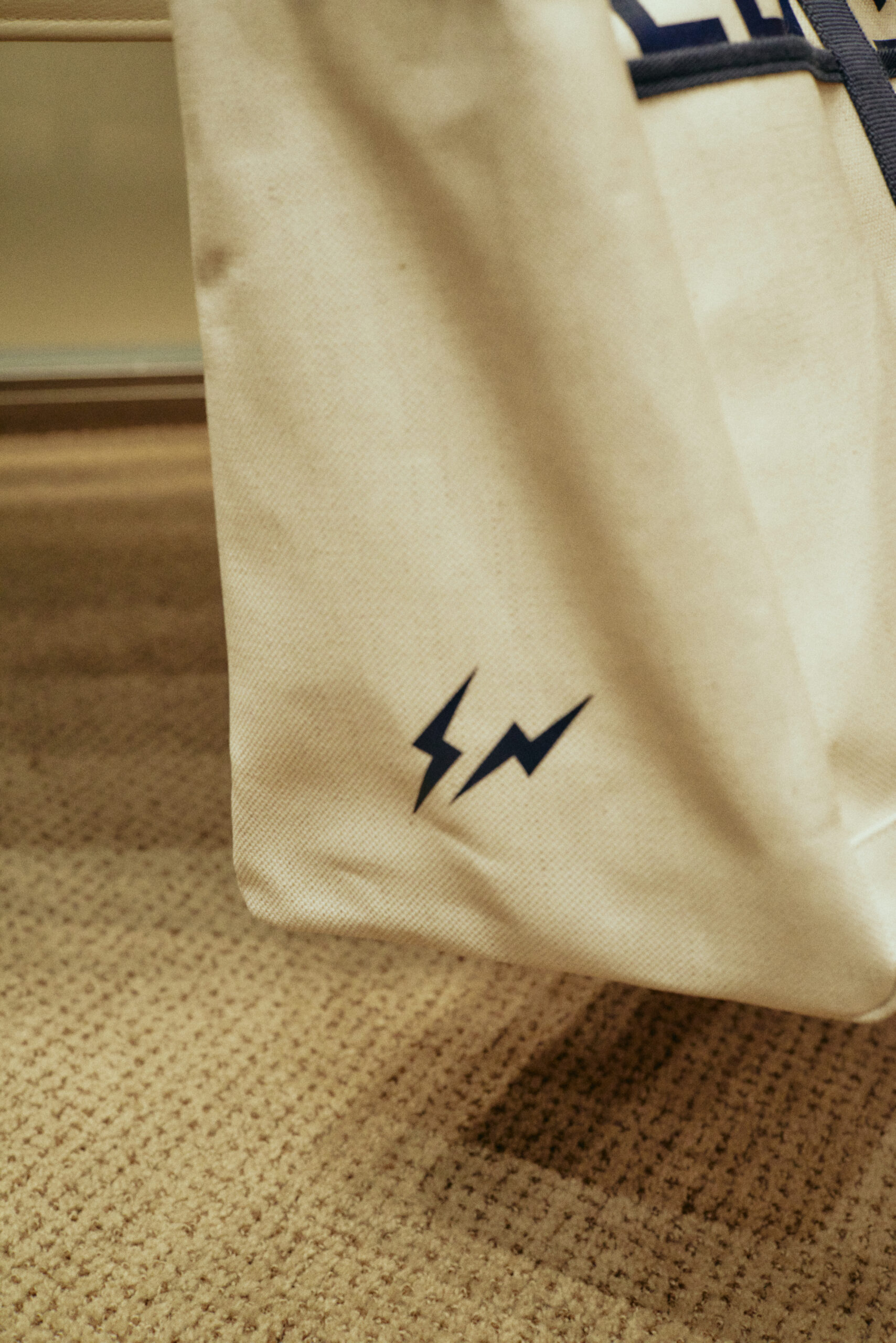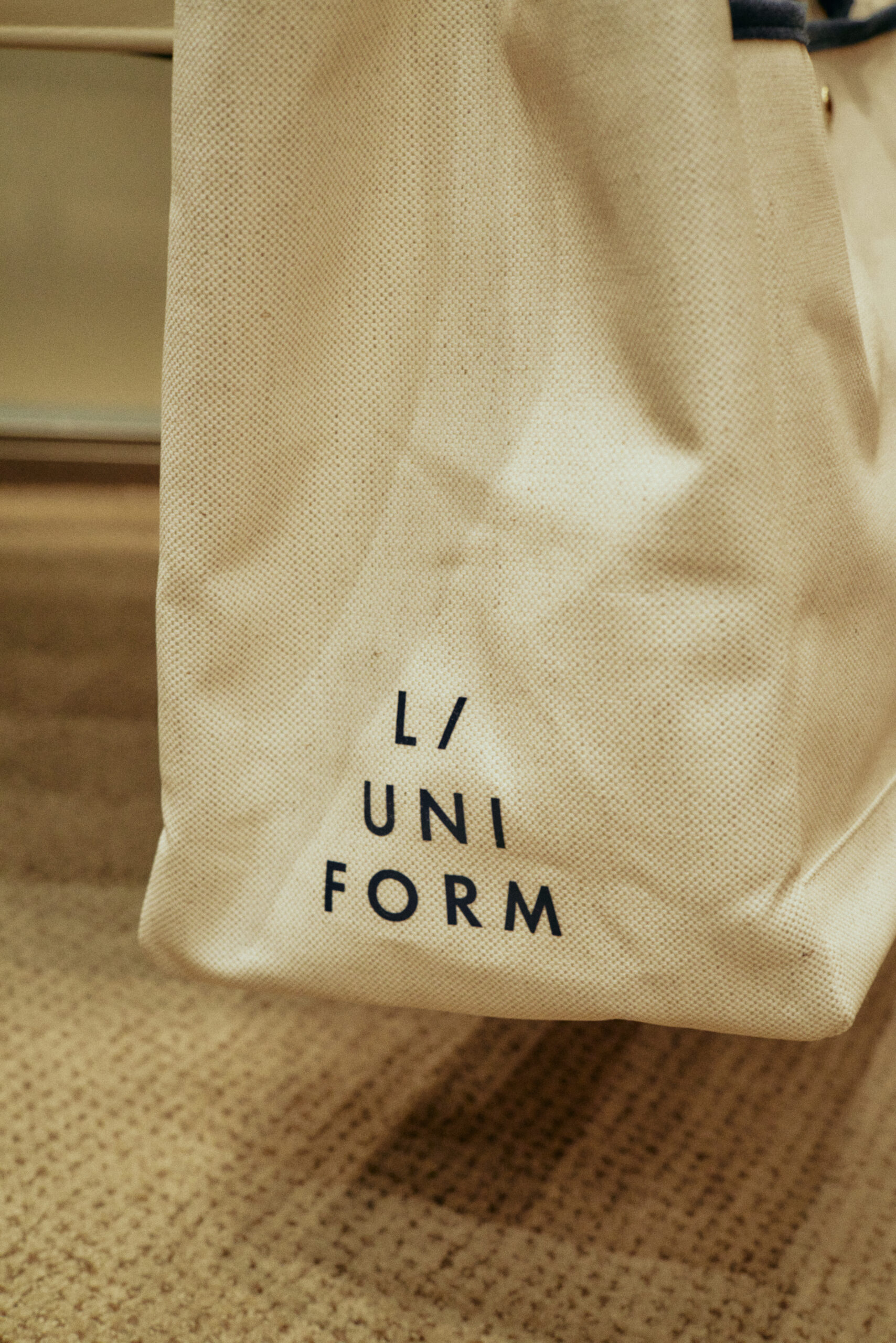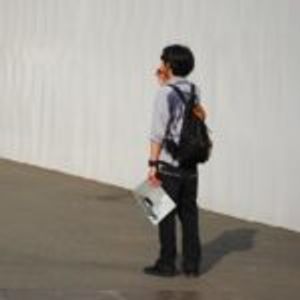On April 16th, 2022, L/UNIFORM and fragment design released THE BIG BAG BY FRAGMENT, their first collaboration after eight years.
Jeanne Signoles, the designer of L/UNIFORM, came to Japan in time for the release. In this interview, Jeanne and Hiroshi Fujiwara, who met for the first time in a while, speak to us about how they met and came to release THE BIG BAG BY FRAGMENT. Further, as someone who loves Japan, Jeanne tells us how she enjoys Japan.
Wanting to put out the bag while being in Japan
——It was moving to see the two of you talk to each other and rejoice in reuniting. Has it been a long time?
Hiroshi Fujiwara (Fujiwara): It’s been three years.
Jeanne Signoles (Jeanne): The last time we saw each other was here (Grand Hyatt Tokyo). You haven’t changed, Hiroshi-san. I’ve been to Japan many times, but I couldn’t for a long time because of covid.
Fujiwara: We started working on THE BIG BAG BY FRAGMENT project, which just came out, when we met last time. L/UNIFORM Tokyo just opened then (April 2019), so we were preparing for the bag to be sold there and had finished designing it. But the project stopped because of covid.
Jeanne: Yeah. We were ready to launch it anytime, but we value collaboration. I wanted to release the bag when I could go to Japan.
Fujiwara: Even after covid, Jeanne and I kept in touch. I reached out to her some months ago and said, “What should we do?” and we began working towards releasing it.
Jeanne: I was planning to launch it whenever I could go to Japan, but I couldn’t for a long time. I couldn’t go to Japan, but I decided to release it in April because I got tired of waiting. Then, I learned you could go to Japan on a business visa, so I rushed to get it, and here I am in Japan today.
——I heard you got THE BIG BAG BY FRAGMENT made based on L/UNIFORM’s No.54 bag. Was there anything you were particular about regarding getting the bag custom-made?
Fujiwara: I always use the same bag, so I asked them to make a bag that’s easy to use as that one. I got them to make long straps so it’s easy to carry, added additional handles on the sides, and changed the fabric to a canvas in a single layer to make it light.
Jeanne: I didn’t make any design requests. When I heard Hiroshi’s ideas, I naturally felt like we could create something brilliant.
Hiroshi-san was the first person who came to France to see the office
——It sounds like you trust Fujiwara-san. How did you two meet?
eanne: Before we met, I heard about Hiroshi-san from Sarah from Colette (Sarah Andelman, the creative director of the now-closed boutique Colette in Paris) and our mutual friend Frederick. I met him for the first time through Frederick.
Fujiwara: He introduced us because she was launching a new bag brand.
Jeanne: Hiroshi-san came to my office in France. But I had just launched the brand, so the office wasn’t complete yet.
Fujiwara: Did you already have products available at the time?
Jeanne: No, we were still producing prototypes then. We started selling products at the shop in September. Hiroshi-san visited in June.
——Did many people come and visit from abroad, like Fujiwara-san?
Jeanne: Hiroshi-san was the first person who came to France to visit. It was an honor to have an influential person in Japanese fashion come, and I still remember how I explained the products to him.
Fujiwara: You explained each product in detail. Many luxury French bags have eye-catching designs, like monograms, but L/UNIFORM specializes in canvas fabrics, and their bags are for everyday use. The bags are high-end, but I felt drawn to how they don’t look that way at first glance. I was trying to start The Pool Aoyama then, and for our previous collaboration, I had them make custom bags because I wanted to have special bags for the store.
he daily lives of Japanese people are full of craftsmanship
——I heard you like Japanese culture, Jeanne-san. What do you look forward to when you visit?
Jeanne: I came to Japan for the first time in 1998 because of my husband’s work. I’ve been greatly influenced by Japanese culture ever since. I try to visit different places when I come to Japan. I went to Naoshima to see Tadao Ando’s architecture, Mandarake in Nakano Broadway to see toys and anime merchandise, and the Tokyo International Forum to dig through stuff at the flea market. I read a lot of Japanese literature too. I like Haruki Murakami.
I also love exploring on my bike. I cycle on the back streets without looking at a map. People ask me if I don’t get lost cycling in a foreign country without looking at a map, but in Japan, you always reach the main road at some point. So, I’ve never been lost here. I’ve been to places like Tsukiji and Sendagi on my bike. I want to go on a bike if I have time on this trip.
——Do you like areas where people live more than tourist spots?
Jeanne: Famous stores in Aoyama and Omotesando and museums are great, but it’s so fun to look at back streets and residential areas and find a small shop to visit. I often feel like Japanese people’s everyday lives are filled with craftsmanship when I see various things in residential areas. In France, craftsmanship has decreased a lot, so when I see it in Japan, I respect it and get a lot of inspiration.
Fujiwara: It’s dangerous for me to do something similar in France. I often hear Japanese tourists getting mugged in back streets abroad.
Jeanne: Crimes like that happen, but I think it’s okay for you to do what I do. But Japan is a different case. I once bought so many things and left my shopping bags somewhere, but they came back to me intact and without any trace of anyone going through them. That surprised me. When I lost my passport, I realized it was gone two days after, but I found it safe and sound. Japan is the only country with an environment like that, where such miraculous things happen constantly. It’s different from other countries. Rather than other countries being dangerous, Japan is just special.
——Lastly, is there anything you want to ask Fujiwara-san, who you met for the first time in a while?
Jeanne: What’s your next project?
Fujiwara: A new project… I want to travel.
Jeanne: Interesting. Because of covid, we can’t go back and forth all over the world, so the idea of travel has changed for people. Even in France, when there were lockdowns in Paris, many people rented small houses in the countryside to live and discover new things there. Also, you couldn’t go on short-distance flights, so sleeper trains started running.
I’m looking forward to seeing what sort of new travel will start and what sort of project Hiroshi-san will work on precisely because we’ve experienced covid for these past two years. Things might not go back to the way they used to be.
Hiroshi Fujiwara
Musician, music producer, and owner of fragment design. Hiroshi Fujiwara began working as a DJ in the 80s, and afterward, he broadened his musical career while working in the fashion industry using his unique taste and aesthetic. In fragment design, Fujiwara’s creative direction goes beyond any genre. Instagram:@fujiwarahiroshi
Jeanne Signoles
Born in Bordeaux, France. Jeanne Signoles is CEO and art director of L/UNIFORM, a bag brand. After working in the airline industry and finance business, she joined Goyard. Signoles started L/UNIFORM in 2014, and in April 2019, she opened L/UNIFORM Tokyo, its first flagship store in Japan.
Instagram:@jeannesignoles
Photography Shunsuke Shiga
Text Kango Shimoda
Translation Lena Grace Suda

